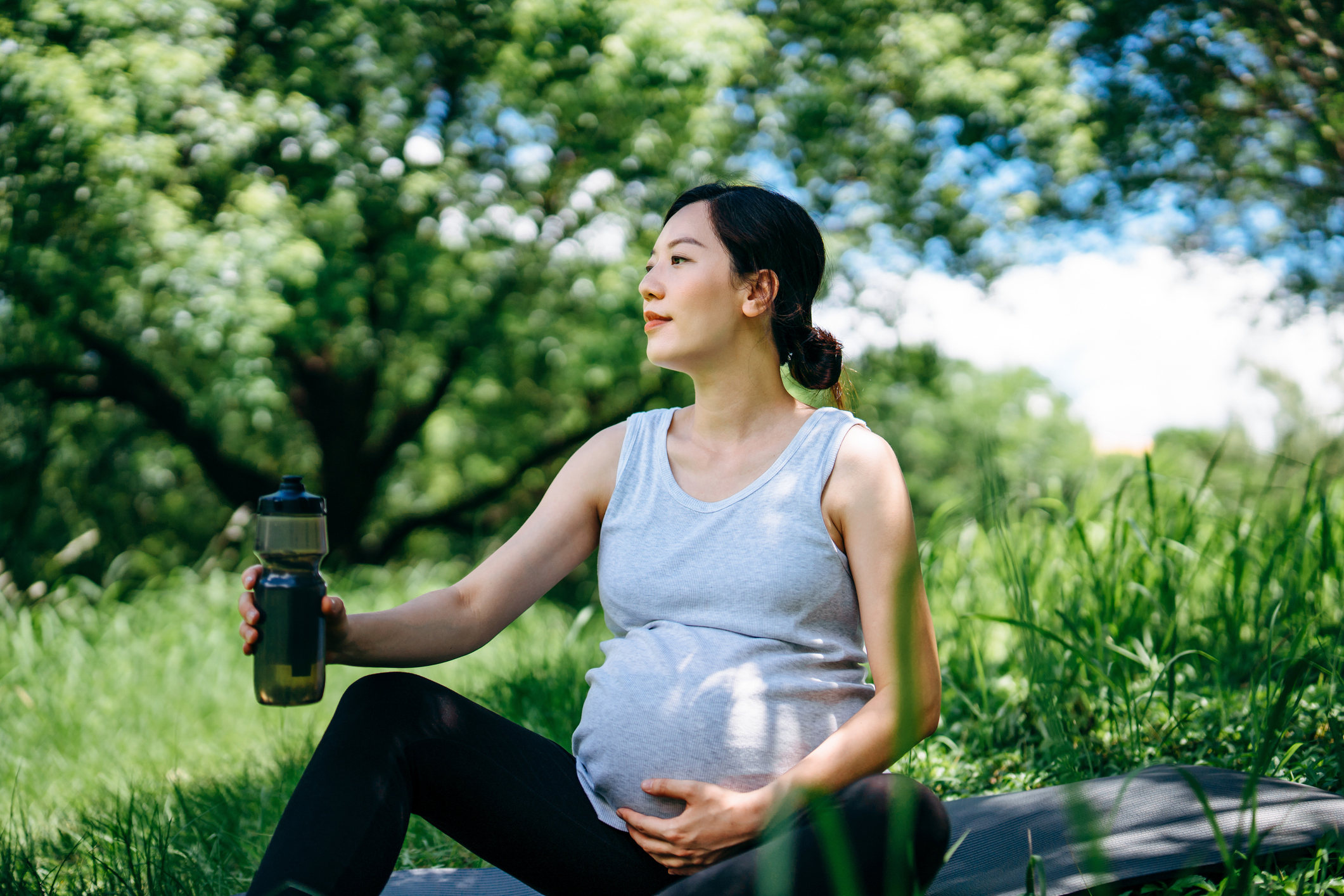Breathing and Allergies During Pregnancy
Breathing is something we rarely think about — until pregnancy makes it feel different. As your body changes, you may notice it’s harder to take a deep breath or feel like you’re short on air. Don’t worry — this is common and usually harmless. Here’s why it happens and what you can do to breathe easier.

Shortness of Breath
As your uterus grows, it pushes against your internal organs and diaphragm, leaving less room for your lungs to expand. This can make you feel short of breath, especially when climbing stairs or trying to find a comfortable sleeping position.
Here’s what can help:
- Hold your arms over your head to raise your rib cage and give your lungs more room
- Practice very slow, deep breathing while relaxing to make the most of your lung capacity
- Sleep with your head elevated on pillows
- Slow down when climbing stairs
The good news: In the last few weeks of pregnancy, your baby drops into your pelvis, taking pressure off your diaphragm. Breathing usually feels easier then.
Stuffy Nose and Allergies
Pregnancy can sometimes bring on a stuffy nose or even allergy-like symptoms, even if you’ve never had allergies before.
If you’re dealing with a stuffy nose, try these tips:
- Avoid smoking or being in smoke-filled rooms
- Avoid using nasal sprays or drops (except salt-water drops), which shrink blood vessels and may affect you and your baby
- Identify and avoid triggers, such as pet dander, if possible
- Place warm, moist towels on your face to make it easier to clear your chest
- Press or gently massage your sinuses by rubbing the bony ridge above and under your eyebrows, under your eyes and down the sides of your nose
- Salt-water nose drops (1/4 teaspoon salt dissolved in 1 cup warm water) may help. Make a fresh solution each time. You can inhale it from your palm or use a neti pot.
- Steam can bring relief. Breathe in steam from a hot shower, a pot of boiling water (removed from the stove first) or a vaporizer. If you use a vaporizer, keep it clean to prevent bacteria and mold. A cool-mist humidifier may also help.
- Sip hot soups if you have a cold
Refer to the medication list provided by your doctor or midwife before you take anything. Breathing changes are a normal part of pregnancy, but they don’t have to make you miserable. Simple adjustments — like slowing down, staying hydrated and using safe home remedies — can make a big difference. If you’re ever unsure or your symptoms feel severe, check in with your healthcare provider for peace of mind.
Discover Similar Stories
Choose a topic below to read more stories like this one.
Support at Every Step
From conception to delivery and after, our pregnancy and childbirth providers put you first.





